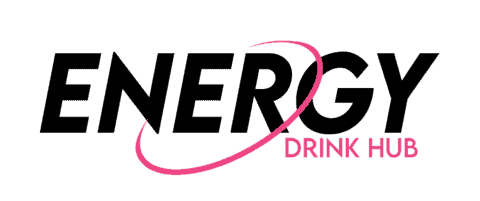
Seeing the face of the newborn baby is a magical moment for a mother. This special moment also brings extra responsibility for the new mom.
Sometimes, new moms require a quick boost to get things done and take care of the baby. That’s why many new moms wonder if they can consume energy drinks while breastfeeding.
Breastfeeding mothers are generally advised against consuming energy drinks because of caffeine. The caffeine consumed by the mothers is also indirectly consumed by the babies.
But, if the mothers exercise caution and monitor their babies’ reactions, they can still enjoy some energy drinks.
Do note that most energy drink companies warn against pregnant women or nursing moms consuming energy drinks. So, it’s a good idea to consult doctors before consuming energy drinks when you’re pregnant or nursing.
Page Contents
What Are The Ingredients Of Energy Drinks?
Caffeine
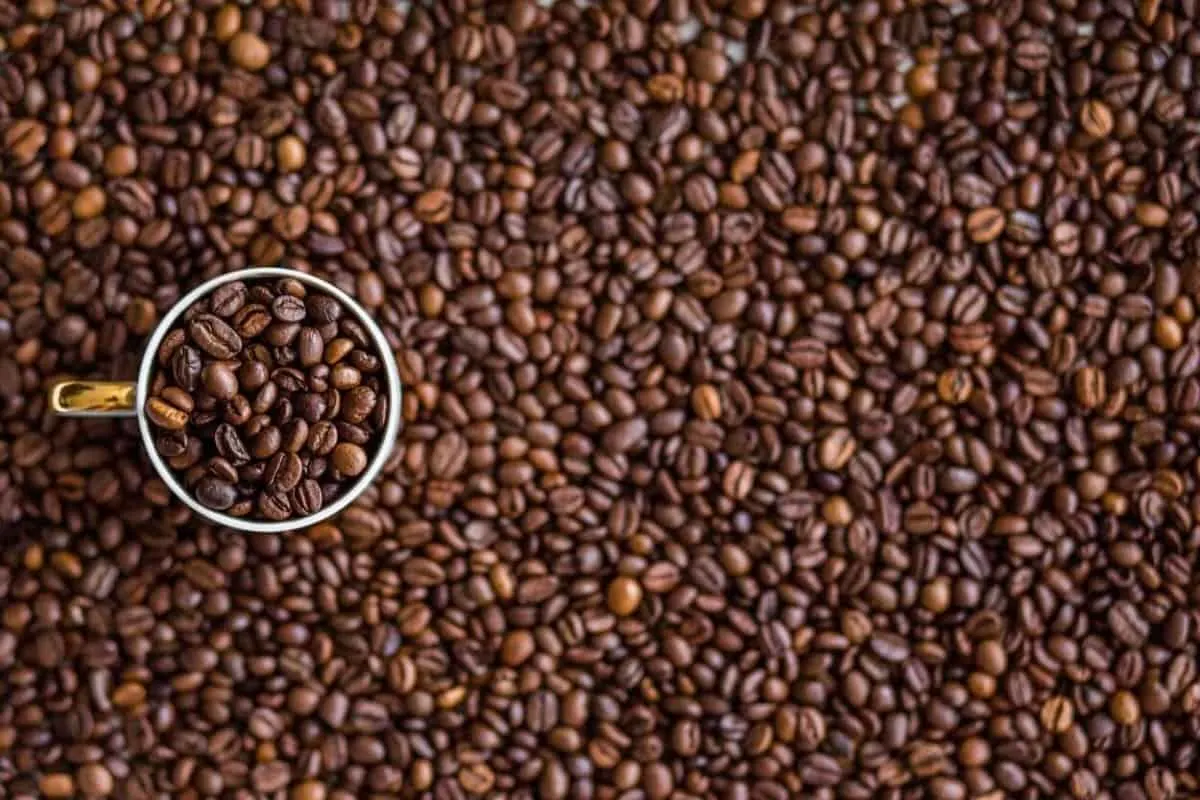
Caffeine is the most important ingredient in energy drinks as it is mainly responsible for giving you energy. Energy drinks generally contain around 50mg to 300mg of caffeine.
The recommended daily caffeine limit is 400mg for both men and women, so don’t consume too much caffeine, even if you’re not breastfeeding.
According to this study, caffeine has the following benefits:
- keeping you awake
- increasing alertness
- improving physical endurance
- increasing mental capacity
Sugar
Sugar is the second main ingredient of many energy drinks. This is because it can give you a bit of energy and make the energy drink taste better.
However, consuming sugary energy drinks can lead to a sugar crash, something you don’t want if you take care of a baby. Therefore, you should go for sugar-free energy drinks.
Sugar-free energy drinks are becoming more and more popular in recent years.
Manufacturers and brands are leaning towards the use of artificial sweeteners for the sweet flavor, but it’s best to still consume these in moderation.
Taurine
Taurine is an amino acid that is taken as a supplement by many people. It is usually made synthetically in laboratories. It has some health benefits like lowering blood pressure and improving athletic performance.
Our bodies can make taurine on their own. Infants cannot produce taurine, so they get taurine from breast milk.
According to this study, breastfeeding moms shouldn’t take any taurine supplements.
Vitamins
Energy drinks generally contain a lot of B vitamins. The most common B vitamins in energy drinks are:
- Riboflavin (vitamin B2)
- Niacin (vitamin B3)
- Pantothenic acid (vitamin B5)
- Vitamin B6
- Vitamin B12
B vitamins are known to play an important role in maintaining good health. They also help to prevent infections and promote or support:
- Cell Health
- Brain Function
- Good Digestion
- Cardiovascular Health
- Hormones and Cholesterol production
- Muscle Tone
- Better Eyesight
- Red Blood Cells Growth
- Energy Levels
- Proper Nerve Function
Creatine
Creatine is a chemical that is mostly found in our muscles and brains. It is usually consumed to improve strength, increase muscle mass, and for the muscle recovery process.
Creatine is naturally present in breast milk, so babies get creatine from their mothers. Studies suggest that creatine supplementation can help nursing mothers avoid creatine deficiency syndromes. That said, there’s no scientific evidence of this hypothesis.
How Much Caffeine Can You Consume While Breastfeeding?

You can consume up to 300mg of caffeine per day while breastfeeding, which is equivalent to two to three cups of coffee.
While some evidence supports this upper limit, you should still be wary about consuming caffeine. Remember, after your baby grows and doesn’t depend on breast milk anymore, you can go back to your regular caffeine consumption habits.
It would be best if you also remembered that many products other than energy drinks could contain caffeine. That’s why you should keep an eye on your caffeine intake throughout the day.
If you consume caffeine and face difficulties like irritability and trouble sleeping, you should reduce or completely stop consuming caffeine.
You can also watch this video to know how much caffeine is fine while breastfeeding.
How Much Caffeine Does Your Baby Get From Breastfeeding?
Around 1% of the caffeine you drink passes to your baby through breast milk.
The amount of caffeine may seem small, but babies cannot process caffeine as quickly as adults. Caffeine stays in the body of an adult for around three to seven hours. On the other hand, babies hold onto caffeine for around 65-130 hours.
Their liver and kidneys are not developed enough to process caffeine that quickly.
For this reason, even the smallest amounts of caffeine can build up in your kid’s body over time.
How Long After Consuming Energy Drinks You Can Breastfeed Again?
Your body tends to metabolize most of the caffeine from food or energy drinks before it reaches the infant. Therefore, the baby won’t be affected much by the caffeine you consume.
The caffeine levels in breast milk peak at 1-2 hours after consuming caffeinated products. And that means it’s safe to consume caffeine at least a few hours before breastfeeding your baby.
What Are The Effects Of Energy Drinks On Breastfeeding Babies?
The effects of energy drinks on breastfeeding babies can vary, depending on factors such as the mother’s caffeine consumption and the amount of milk the baby drinks. Some possible effects include irritability, fussiness, sleep disturbances, and decreased appetite on said infants.
In extreme cases, excessive caffeine consumption by the mother can lead to caffeine toxicity in the baby, which can cause symptoms such as jitteriness, and an increased heart rate. In order to minimize the risk of these negative effects, it is generally recommended that breastfeeding mothers avoid consuming energy drinks.
Can You Drink Energy Drinks While Breastfeeding?
It is generally not recommended to consume energy drinks while breastfeeding. The high levels of caffeine and other stimulants found in these beverages can be passed on to the baby through breast milk, potentially leading to irritability, sleep disturbances, and other issues.
Furthermore, excessive caffeine intake can have negative effects on the mother’s health, such as increasing blood pressure and causing dehydration. It is advisable for breastfeeding mothers to limit their caffeine intake to no more than 300 milligrams per day, which is equivalent to about two cups of coffee.
Does drinking caffeine affect breast milk?
Consuming caffeine can have an impact on breast milk. Caffeine is a stimulant that can pass into breast milk, and its effects on infants can vary. Some babies may be sensitive to caffeine and become irritable or have trouble sleeping if their mother consumes large amounts of caffeine.
To minimize potential effects on breastfed infants, many healthcare professionals recommend that breastfeeding mothers consume caffeine in moderation. It’s advisable to monitor your baby’s reactions to caffeine and adjust your caffeine intake accordingly.
Can energy drinks cause gas in breastfed babies?
Energy drinks can potentially cause gas or other digestive issues in breastfed babies, primarily due to the caffeine content and other compounds present in these beverages. Caffeine is a stimulant that can pass into breast milk and may affect a baby’s digestive system and sleep patterns.
To ensure the well-being of a breastfed infant, it’s generally recommended that breastfeeding mothers limit their consumption of caffeine-containing products like energy drinks. If you suspect that your baby is experiencing discomfort or changes in behavior related to caffeine intake, reducing or eliminating caffeine from your diet and observing your baby’s reactions is advisable.
Which Energy Drinks Should Consider While Breastfeeding?
You should consider energy drinks that contain a modest amount of caffeine and a low amount of sugar.
Energy drinks with 50mg to 150mg of caffeine are good choices to give you a nice boost. This way, you can also keep your daily caffeine consumption way below the 300mg limit.
On the other hand, energy drinks that are sugar-free or have low sugar content can help you avoid a sugar crash.
Here are some energy drinks that you can try when you’re breastfeeding:
| Name of Energy Drink | Calories | Caffeine Amount | Sugar Amount |
| Red Bull | 110 | 80mg | 26g |
| XS | 10 | 80mg | 0g |
| Aspire | 0 | 80mg | 0g |
| C4 Natural Zero | 0 | 120mg | 0g |
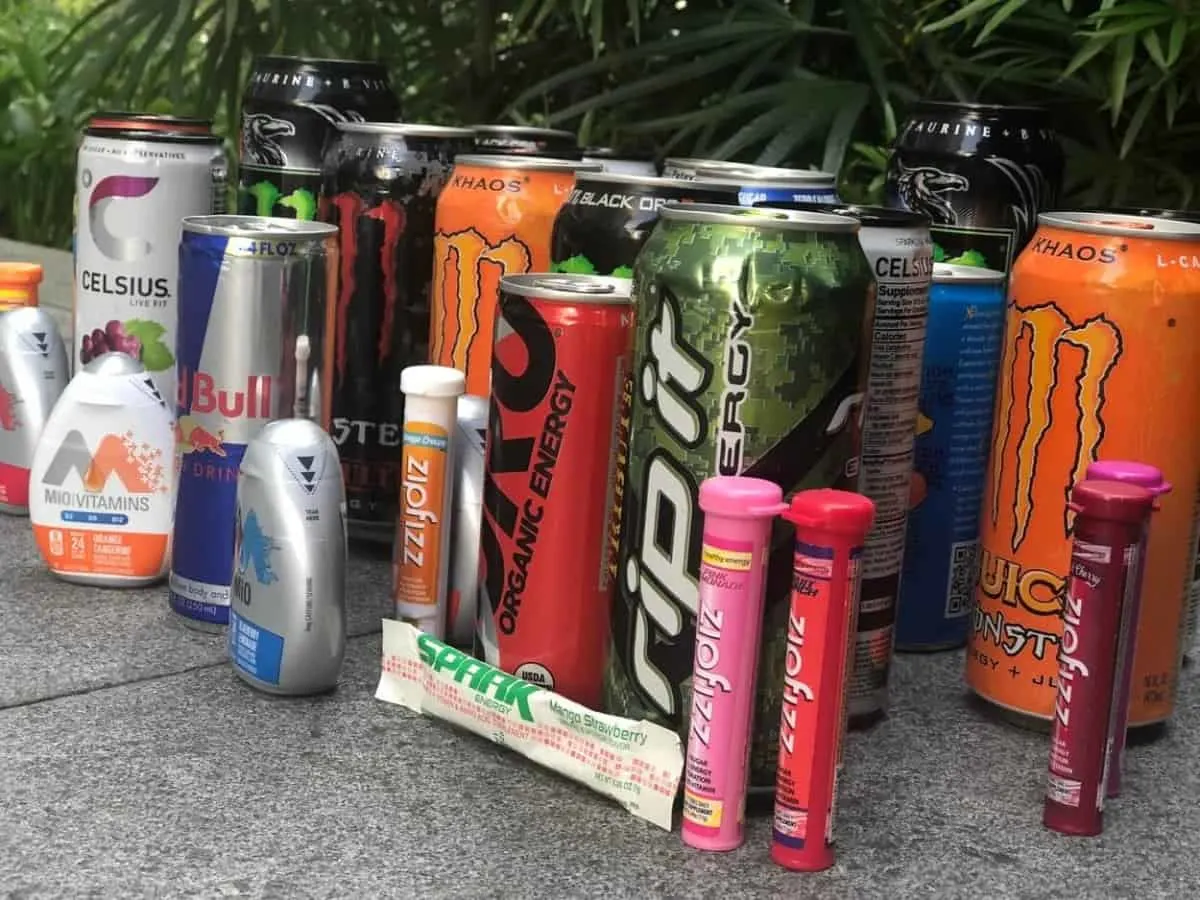
Red Bull
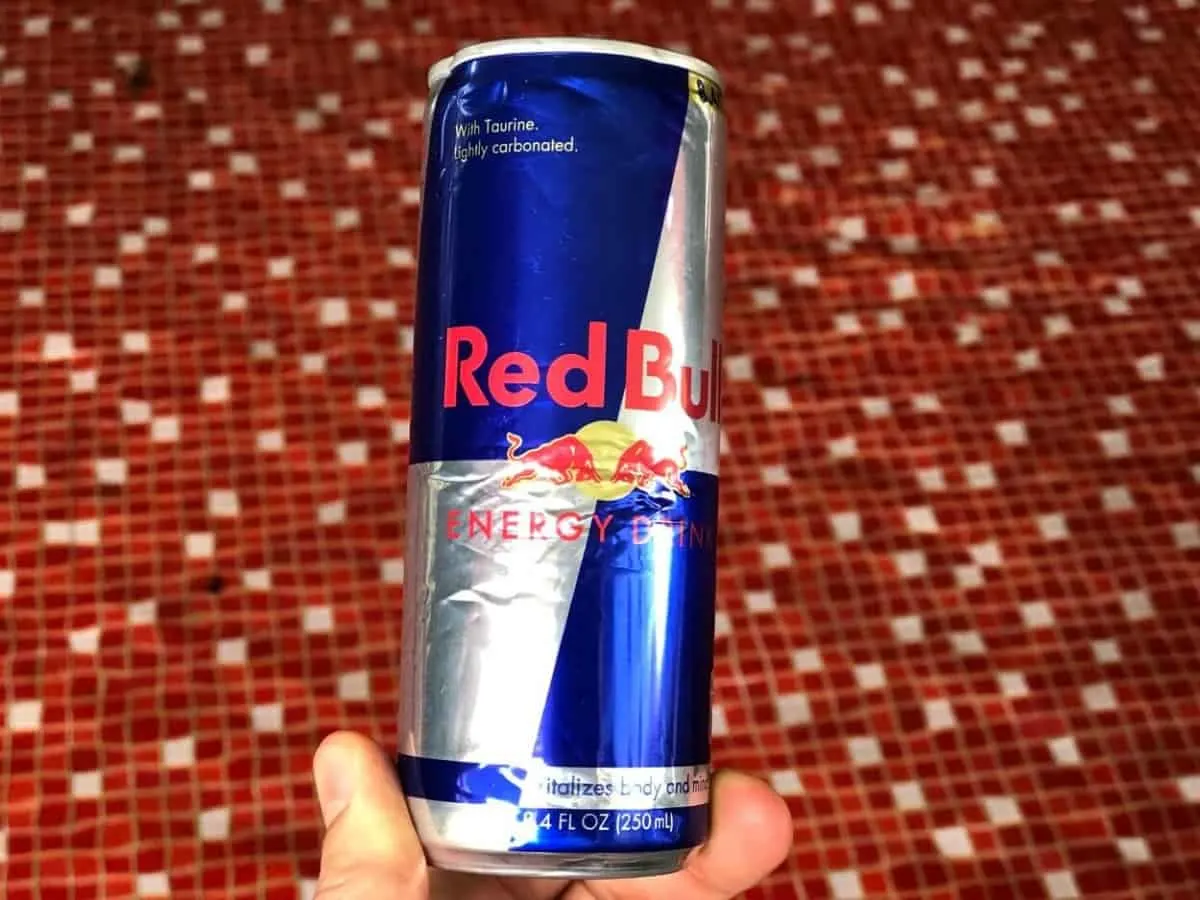
Red Bull is a popular energy drink with 80mg of caffeine, 110 calories, and 26g of sugar. It has a moderate amount of calories, but its caffeine is pretty low.
The sugar content of Red Bull is also lower than the daily sugar limit. Plus, it has a great taste due to the sugar.
It can give you a good boost when you need it. If you want to know more about Red Bull, you can go through this article.
XS Energy Drink
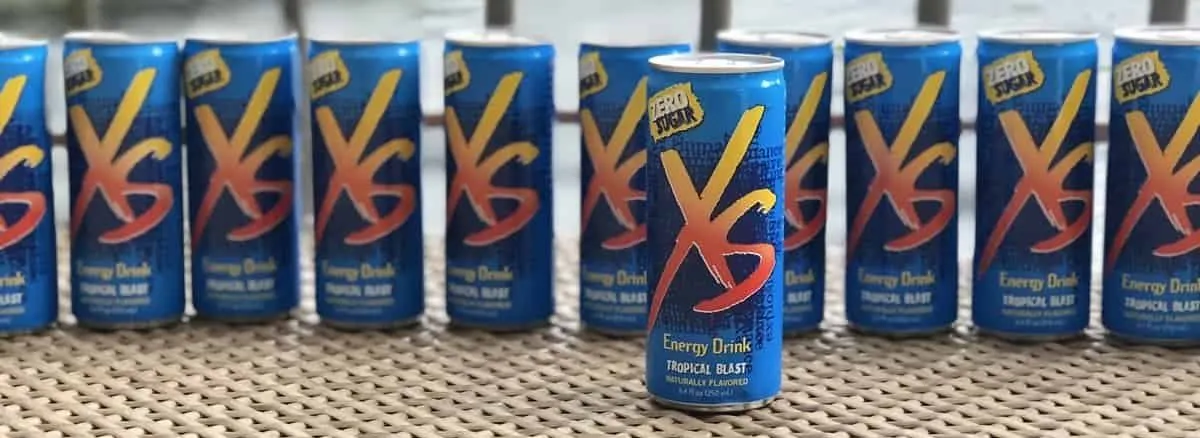
XS energy drink contains around 80mg of caffeine and only 10 calories per 8.4 fl. oz. XS energy drink doesn’t have any sugar, so you don’t need to worry about any sugar crash at all.
If you want an energy drink that gives you an extra push without harming your health, you should go for this energy drink.
It is a naturally flavored energy drink that also contains ingredients like ginseng. Ginseng boosts your immune system while lowering cholesterol levels and blood sugar levels at the same time.
Aspire Energy Drink
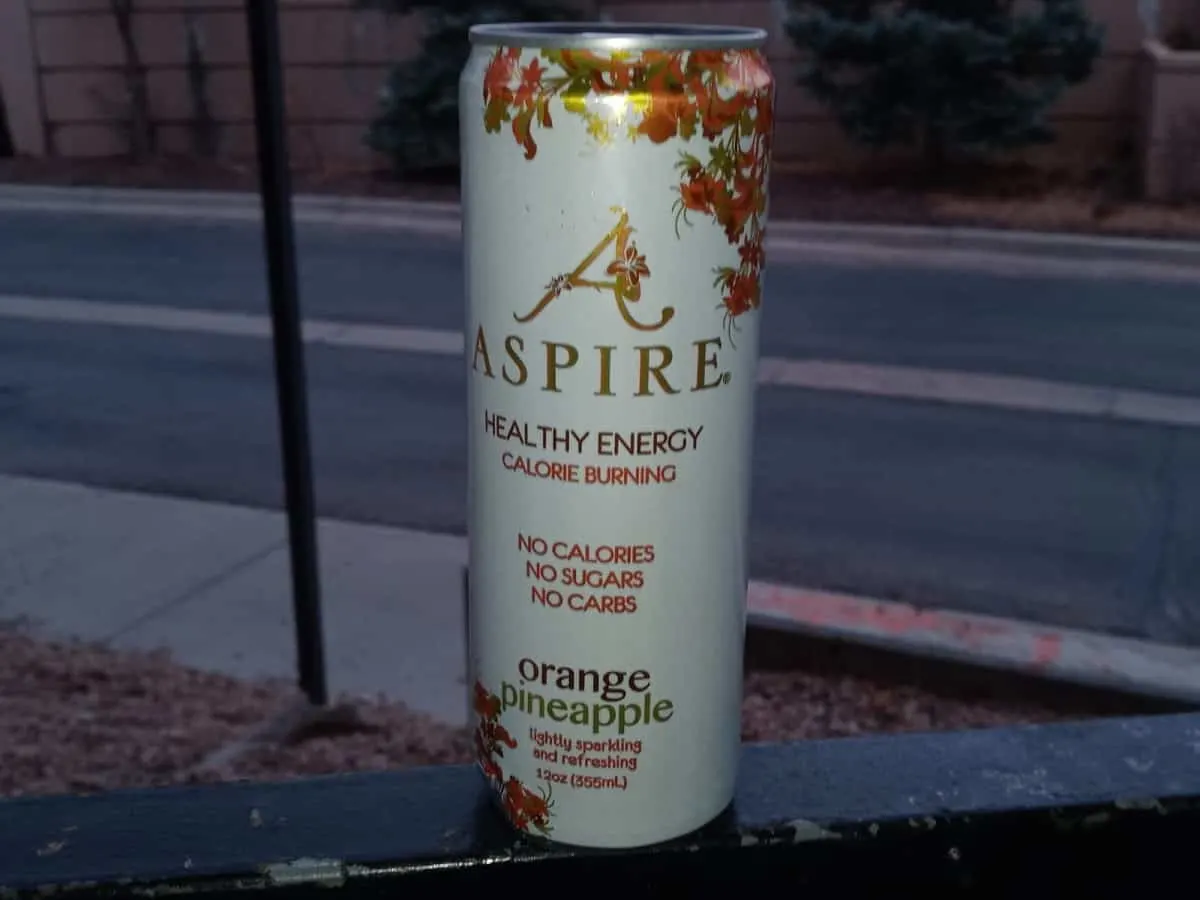
Aspire energy drink is usually considered on the healthier side of energy drinks. It’s rich in natural ingredients, and it doesn’t contain any sugar or calories.
It only has 80mg of natural caffeine in each 12 fl. oz. can. If you’re looking to keep your daily caffeine consumption below 100mg, this is a solid option.
If you want to buy this energy drink, you can check out this article about the best places to buy it.
C4 Natural Zero
C4 Natural Zero is the least caffeinated version of C4 energy drink. It has only 120mg of caffeine from Coffeeberry.
Just like Aspire energy drink, it doesn’t have any sugar or calories. You can buy a 12-can pack of C4 Natural Zero for around $25 from Amazon. It is a pretty reasonable price as each 12 fl. oz. can cost around $2.
What Are The Long Term Effects Of Consuming Energy Drinks?
Consuming too much caffeine for a long time can cause problems related to the heart and liver.
This study found that too much caffeine can raise blood pressure, which increases the risk of stroke and heart attack. It can also increase heart rate. These problems can be experienced by young people as well.
Consuming too many sugary energy drinks can also lead to severe problems like acute liver injury. This liver injury can result in fatal or urgent liver transplantation.
Therefore, whether you’re breastfeeding or not, you shouldn’t consume energy drinks every day. If you really need a quick boost, only then you should consume a can of energy drink.
Final Thoughts
Energy drinks are good for providing an energy boost while keeping you awake. That’s why so many people lean towards these beverages.
You may feel even more tempted to go for an energy drink when you’re breastfeeding. However, you should try to consume as little caffeine as possible for the betterment of your baby.
If you can, you should avoid consuming caffeinated products altogether so that your baby doesn’t hold onto the little amount of caffeine it gets. This way, you can keep your baby safe from the harms of caffeine.
